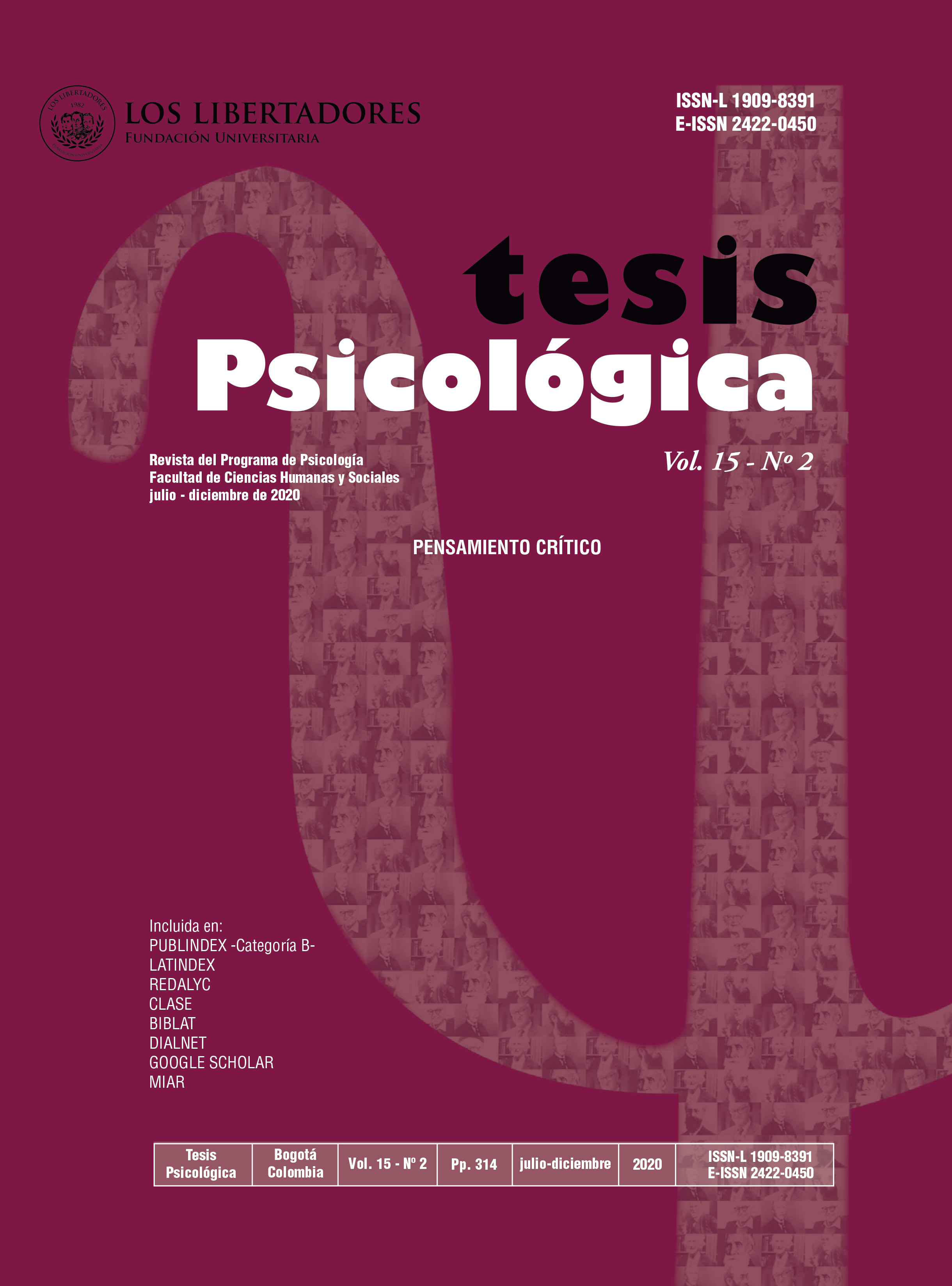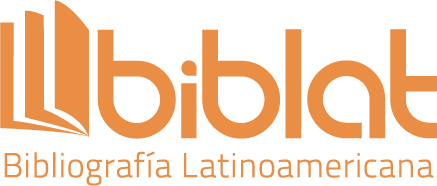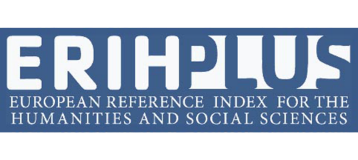Effect of Cognitive Strategy Instruction on the Accuracy of Metacognitive Monitoring of U.S. College Students
DOI:
https://doi.org/10.37511/tesis.v15n2a9Abstract
Background: Monitoring, as a regulation component of metacognition, is an essential aspect of self-regulated learning. Monitoring is recognized as a learner's ability to successfully understand what she is learning and typically involves metacognitive activities such as questioning, reflection, drawing inferences, and self-generating feedback. However, few studies to date have examined the influence of cognitive strategy training on students' metacognitive monitoring accuracy. Objective: The present investigation explored the effect of cognitive strategy training on U.S. undergraduate students' (N = 62) metacognitive monitoring accuracy post-intervention while statistically controlling for pre-intervention monitoring accuracy employing an experimental research design. Method: Students' were randomly assigned to either the strategy training group (n = 31) or control group (n = 31). Results: Results revealed that students exposed to the strategy training demonstrated significantly more accurate monitoring than students in the control group, even after controlling for pre-intervention monitoring accuracy. Conclusions: Classroom teachers can employ the training of specific cognitive strategies in their everyday practice to improve learning outcomes among their students, and this training can be done succinctly, thereby obviating the need for too much additional time.
Downloads
References
Barnett, J. E., & Hixon, J. E. (1997). The effects of grade level and subject on student test score predictions. The Journal of Educational Research, 90, 170-174. doi:10.1080/00220671.1997.10543773
Boekaerts, M., & Rozendaal, J. S. (2010). Using multiple calibration measures in order to capture the complex picture of what affects students’ accuracy of feeling of confidence. Learning and Instruction, 20(5), 372-382. doi:10.1016/j.learninstruc.2009.03.002
Bol, L., & Hacker, D. J. (2001). A comparison of the effects of practice tests and traditional review on performance and calibration. The Journal of Experimental Education, 69(2), 133-151. doi:10.1080/00220970109600653
Bol, L., Hacker, D. J., O’Shea, P., & Allen, D. (2005). The influence of overt practice, achievement level, and explanatory style on calibration accuracy, and performance. The Journal of Experimental Education, 73(4), 269-290. doi:10.3200/JEXE.73.4.269-290
Brannick, M. T., Miles, D. E., & Kisamore, J. L. (2005). Calibration between student mastery and self-efficacy. Studies in Higher Education, 30(4), 473-483. doi:10.1080/03075070500160244
Cohen, J. (1988). Statistical power analysis for the behavioral sciences (2nd ed.). Hillsdale, NJ: Lawrence Earlbaum Associates.
de Bruin, A. B. H., & van Gog, T. (2012). Improving self-monitoring and self-regulation: From cognitive psychology to the classroom. Learning and Instruction, 22(4), 245-252. doi:10.1016/j.learninstruc.2012.01.003
de Bruin, A., Dunlosky, J., & Cavalcanti, R. (2017). Monitoring and regulation of learning in medical education: The need for predictive cues. Medical Education, 51(6), 575-584. https://doi.org/10.1111/medu.13267
Dunlosky, J., & Rawson, K. A. (2005). Why does rereading improve metacomprehension accuracy? Evaluating the levels-of-disruption hypothesis for the rereading effect. Discourse Processes, 40(1), 37–55. doi: https://doi.org/10.1207/s15326950dp4001_2
Dunlosky, J., Rawson, K. A., & Middleton, E. L. (2005). What constrains the accuracy of metacomprehension judgments? Testing the transfer-appropriate-monitoring and accessibility hypothesis. Journal of Memory and Language, 52(4), 551-565. doi:10.1016/j.jml.2005.01.011
Efklides, A. (2008). Metacognition: Defining its facets and levels of functioning in relation to self-regulation and co-regulation. European Psychologist, 13(4), 277-287. doi: 10.1027/1016-9040.13.4.277
Greene, J. A., & Azevedo, R. (2010). The measurement of learners’ self-regulated cognitive and metacognitive processes while using computer-based learning environments. Educational Psychologists, 45(4), 203-209. doi:10.1080/00461520.2010.515935
Griffin, T. D., Wiley, J., & Thiede, K. W. (2008). Individual differences, rereading, and self-explanation: Concurrent processes and cue validity as constraints on metacomprehension accuracy. Memory and Cognition, 36(1), 93-103. doi:10.3758/mc.36.1.93
Grimes, P. W. (2002). The overconfident principles of economics students: An examination of metacognitive skill. Journal of Economic Education, 33(1), 15-30. doi:10.1080/00220480209596121
Gutierrez, A. P., & Schraw, G. (2015). Effects of strategy training and incentives on students’ performance, confidence, and calibration. The Journal of Experimental Education, 83, 386-404. doi:10.1080/00220973.2014.907230
Gutierrez, A. P., Schraw, G., Kuch, F., & Richmond, A. S. (2016). A two-process model of metacognitive monitoring: Evidence for distinct accuracy and error factors. Learning and Instruction, 44, 1-10. doi:10.1016/j.learninstruc.2016.02.006
Gutierrez de Blume, A. P. (2017). The effects of strategy training and an extrinsic incentive on fourth- and fifth- grade students’ performance, confidence, and calibration accuracy. Cogent Education, 4, 1-17. doi:10.1080/2331186X.2017.1314652
Hacker, D. J., Bol, L., & Bahbahani, K. (2008). Explaining calibration accuracy in classroom contexts: The effects of incentives, reflection, and explanatory style. Metacognition & Learning, 3, 101-121. doi:10.1007%2Fs11409-008-9021-5
Hernández Sampieri, R., Fernández Collado, C., & Baptista Lucio, M. (2014). Metodología de la investigación (Sexta edición). Mexico: McGraw Hill.
Huff, J. D., & Nietfeld, J. L. (2009). Using strategy instruction and confidence judgments to improve metacognitive monitoring. Metacognition and Learning, 4(2), 161-176. doi:10.1007/s11409-009-9042-8
Kruger, J., & Dunning, D. (1999). Unskilled and unaware of it: How difficulties in recognizing one’s incompetence lead to inflated self-assessments. Journal of Personality and Social Psychology, 77(6), 1121-1134. doi:10.1037//0022-3514.77.6.1121
Little, R. J. A., & Rubin, D. B. (1989). The analysis of social science data with missing values. Sociological Methods and Research, 18(2-3), 292-326. doi:10.1177%2F0049124189018002004
McCormick, C. B. (2003). Metacognition and learning. In W. M. Reynolds & G. E. Miller (Eds.), Handbook of psychology: Educational psychology (pp. 79-102). Hoboken, NJ: John Wiley & Sons.
McNamara, D. S., & Magliano, J. P. (2009). Self-explanation and metacognition. In D. J. Hacker, J. Dunlosky, & A. C. Graesser (Eds.), Handbook of metacognition in education (pp. 60-81). Mahwah, NJ: Erlbaum.
Nelson, T. O., & Narens, L. (1990). Metamemory: A theoretical framework and new findings. In G. Bower (Ed.), The psychology of learning and motivation (Vol. 26). New York: Academic Press.
Nietfeld, J. L. & Schraw, G. (2002). The effect of knowledge and strategy training on monitoring accuracy. Journal of Educational Research, 95, 131-142. doi: 10.1080/00220670209596583
Nietfeld, J. L., Cao, L., & Osborne, J. W. (2006). The effect of distributed monitoring exercises and feedback on performance and monitoring accuracy. Metacognition and Learning, 1(2), 159-179. doi:10.1007/s10409-006-9595-6
Pressley, M., & Harris, K. R. (2006). Cognitive strategy instruction: from basic research to classroom instruction. In P. Alexander & P. Winne (Eds.), Handbook of educational psychology, 2nd edition, (pp. 265-286). San Diego: Academic Press.
Roediger, H. L., III, & Karpicke, J. D. (2006). Test-enhanced learning: Taking memory tests improves long-term retention. Psychological Science, 17, 249-255. doi:10.1111/j.1467-9280.2006.01693.x
Schaeffer, J. L., & Graham, J. W. (2002). Missing data: Our view of the state of the art.
Psychological Methods, 7(2), 147-177. doi: 10.1037/1082-989X.7.2.147
Serra, M. J., & Metcalfe, J. (2009). Effective implementation of metacognition. In D. J. Hacker, J. Dunlosky, & A. C. Graesser (Eds.), Handbook of metacognition in education (pp. 278-298). Mahwah, NJ: Erlbaum.
Shiu, L. P., & Chen, Q. (2013). Self and external monitoring of reading comprehension. Journal of Educational Psychology, 105(1), 78–88. doi:10.1037/a0029378
Slavin, R. E. (2009). Educational psychology: Theory and practice (9th ed.). Boston, MA: Pearson.
Tiede, H. L., & Leboe, J. P. (2009). Illusions of competence for phonetically, orthographically, and semantically similar word pairs. Canadian Journal of Experimental Psychology, 63(4), 294-302. doi:10.1016/S0361-476X(02)00006-1
Thiede, K. W., Griffin, D., Wiley, J., & Redford, J.S. (2009). Metacognitive monitoring during and after reading. In D. J. Hacker, J. Dunlosky, & A. C. Graesser (Eds.), Handbook of metacognition in education (pp. 85-106). New York, NY: Routledge/Taylor & Francis Group.
Tobias, S., & Everson, H. T. (2009). The importance of knowing what you know: A knowledge monitoring framework for studying metacognition in education. In D. J. Hacker, J. Dunlosky, & A. C. Graesser (Eds.), The educational psychology series. Handbook of metacognition in education (p. 107-127). New York, NY: Routledge/Taylor & Francis Group.
Walczyk, J. J., & Hall, V. C. (1989). Effects of examples and embedded questions on the accuracy of comprehension self-assessments. Journal of Educational Psychology, 81(3), 435-437. doi:10.1037/0022-0663.81.3.435
Winne, P. H., & Jamieson-Noel, D. L. (2002). Exploring students' calibration of self-reports about study tactics and achievement. Contemporary Educational Psychology, 27(4), 551-572. doi:10.1016/S0361-476X(02)00006-1
Winne, P., & Marzouk, Z. (2019). Learning strategies and self -regulated learning. In J. Dunlosky y K. A. Rawson (Eds.), The Cambridge handbook cognition and education (pp. 606-715). Cambridge: Cambridge University Press.
Winne, P. H., & Nesbit, J. C. (2009). Supporting self-regulated learning with cognitive tools. In D. J. Hacker, J. Dunlosky, & A. C. Graesser (Eds.), Handbook of metacognition in education. (pp. 259-277). New York, NY: Routledge/Taylor & Francis Group.
Downloads
Published
Issue
Section
License

This work is licensed under a Licencia Creative Commons Atribución-NoComercial-













